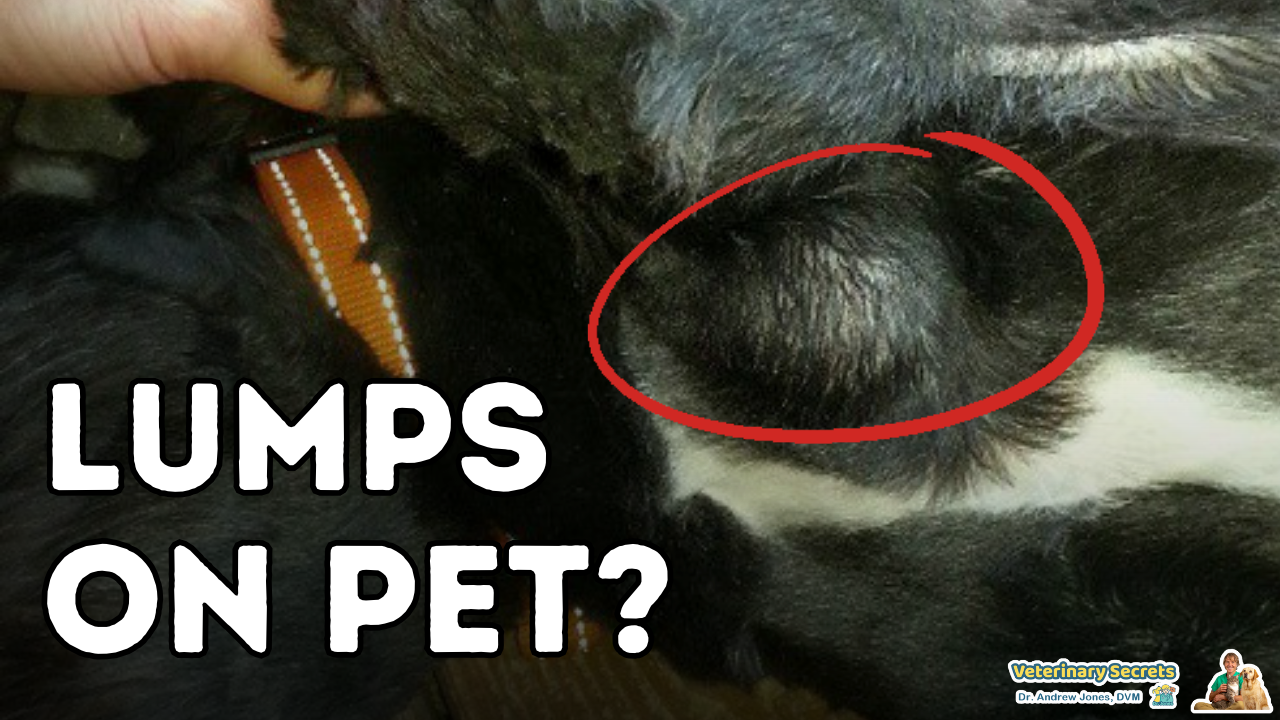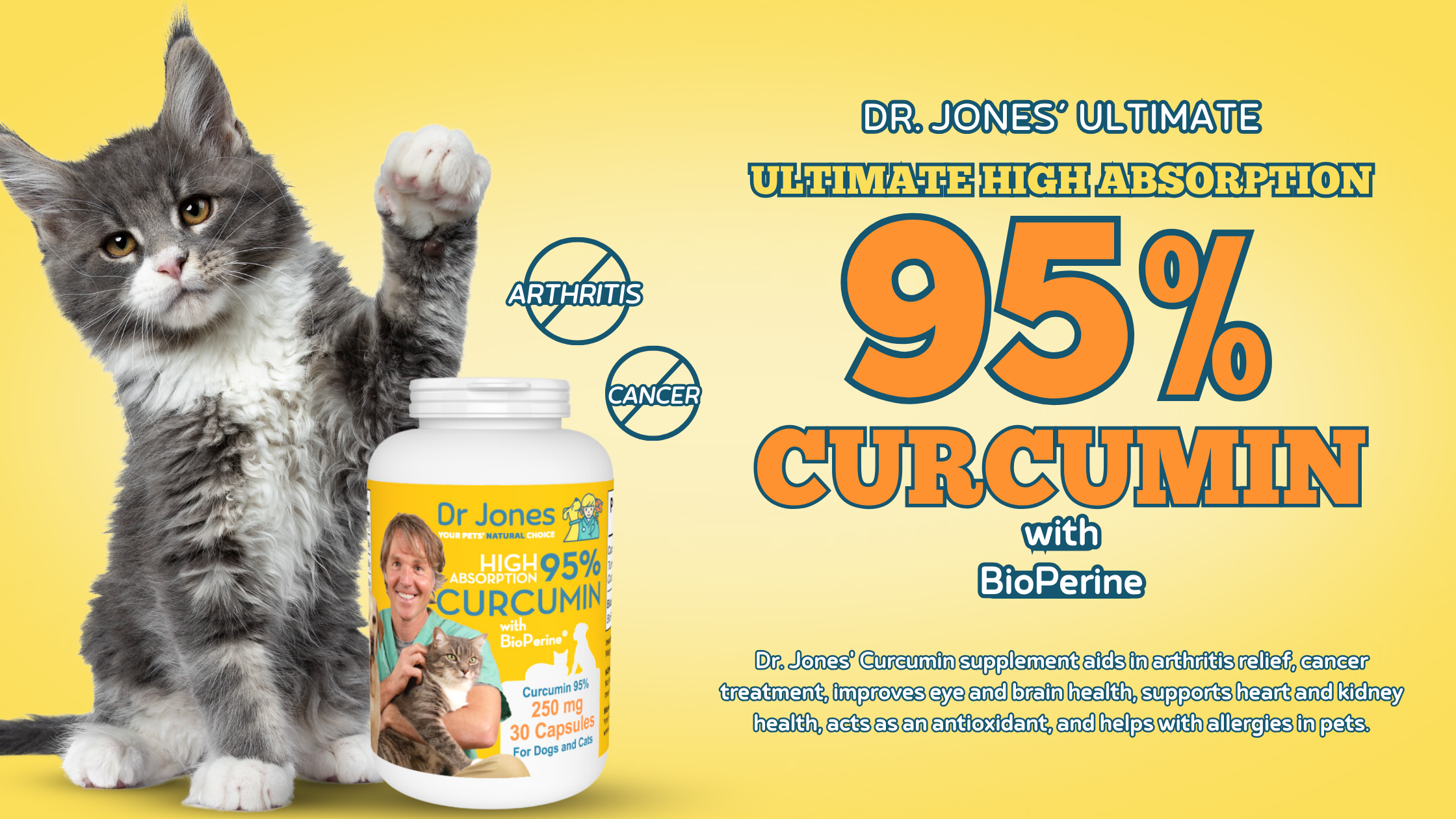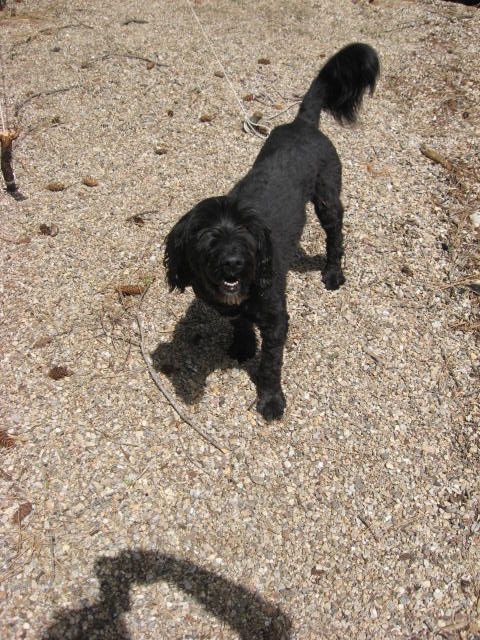Is It A Tumor? 7 Quick and Easy Solutions

Should I worry about this lump on my dog doc? Great question, and in today’s newsletter, I’ll show you how to tell if it is serious, or something to just monitor.
Fortunately most of the lumps we find on our pets are not serious, but even those can cause problems.
In some cases there are supplements that may increase the effectiveness of the immune system, and help it attack the growth.
One of the option you should consider is our NEW 95% Curcumin Supplement, Dr. Jones’ Ultimate High Absorption 95% Curcumin for Dogs and Cat

This was my Dad’s dog, Jessie, who we adopted in 2010 enjoying a camping trip 🙂


Dog Lumps and Cat Lumps: 7 Quick And Easy Solutions
If your dog or cat has a lump, you may be relieved to know that there are a number of things that you can do at home. Most lumps are easy to feel. They may show up on the chest or along the back. Most lumps on dogs are benign, while lumps that appear on cats are often cancerous. Often while petting your pet a cyst becomes noticeable.
As your pet ages, its immune system becomes less effective and lumps and bumps become more prevalent. The immune system is always working to keep away abnormal growths. Common dog lumps are lipomas (benign fatty tumors) and sebaceous cysts (a skin gland that blocks up). Cats relatively often develop cysts, while firm, rapidly growing lumps warrant concern as being cancer.
Assess
The first thing to do is assess the severity of the lump. Lumps that are regularly shaped are less likely to be serious. Lumps that move easy under the skin are usually benign, such as fatty tumors (lipomas). Lumps that grow slowly are likely benign. Lumps that discharge a cheesy material are usually sebaceous cysts and can be left alone.
Aspiration of the mass
A simple thing to do to determine if a mass is serious is to visit your veterinarian and have him or her perform a needle aspirate and cytology of the lump. A microscopic slide can often tell if it is serious or not.
Keep Them Clean
A ruptured cyst needs to be kept clean so it will heal and not become infected. Wash it twice daily with an antiseptic solution (such as chlorhexidine or Iodine). Trim the hair around the cyst to aid in cleaning.
Compressesare
Compressesare a very overlooked way to treat many lumps and cysts. A cyst that is enlarged but won’t rupture can be decreased in size by applying a warm cloth directly to the area daily. Heat the cloth so it is very warm to your skin, then apply it to your pet’s skin until it cools down. Do this twice daily for at least 7 days.
Stimulate the Immune System of the Skin
Vitamin E and essential fatty acids are great for boosting your pet’s skin immune function: give 100 IU per 10 lbs of body weight daily of Vitamin E. The omega 3 fatty acids, especially fish and krill oil are excellent immune stimulants for the skin
Consider Healing Mushrooms
Certain mushrooms have immune stimulating activity. Some of these include, Turkey Tail, Reishi, Maitake. The dose is 25 mg per 10 lbs daily.
Apple Cider Vinegar (ACV)
Apple cider vinegar acts as a peeling agent and removes dead skin cells and the virus found directly in the skin pores. With regular application of ACV, the warts become hard and appear black in color, and eventually should detach from the skin. Before using apple cider vinegar, first wash the affected area with a mild soap (must be clean and free from oil). Wet a cotton ball completely with ACV and put it on the affected area. Use a wrap of some kind to hold the cotton ball in place – ideally you want this on overnight. You can also just apply ACV with a swab and cover that (to prevent your pet from licking it off). If you are persistent with applying ACV, you should see a difference within a week.
There are a few specific herbs that I want you to consider. The first are the topical herbs Aloe and Calendula. They are two herbs available in a cream that will take away some of the inflammation from a ruptured cyst.
- Green Tea – has numerous benefits, but specifically for lumps and bumps. Green Tea has been shown toy stimulate the immune system and inhibit lump growth. Standardized green tea extract is dosed at 50 mg per 10 lbs of body weight daily. This has been very helpful for dog lipomas as it is increasing metabolism, resulting in smaller lumps.
- CBD (Cannabidiol) – A key use for the cannabinoids is for masses- those that are benign, and those that are potentially cancerous. In part the cannabinoids are making the immune system more effective, while at the same time being anti-inflammatory on the growth. Standard CBD doses are 3mg/10lbs twice daily. We now have an awesome CBD supplement at http://www.thecbdsupplement.com [http://www.thecbdsupplement.com]
- 95% Curcumin – This is isolated from the herb tumeric, and has specific studies showing it to be beneficial for precancerous masses. 95% curcumin doses of 50-100mg/10lbs once-twice daily.
A paper titled ‘Curcumin and Cancer’ concluded this:
curcumin exhibits anticancer ability by targeting different cell signaling pathways including growth factors, cytokines, transcription factors, and genes modulating cellular proliferation and apoptosis
- Homeopathy – The last remedy that has helped many a dog or cat with abnormal lumps is a homeopathic called Thuja. The first homeopathic remedy that many homeopaths advise for any type of canine or feline cancer. The dose is 30C given once-twice daily for at least 30 days.
If your pet has a lump or abnormal growth, take heart in knowing that most lumps are not cancerous, and that they can be treated at home. If you are at all concerned, see your veterinarian, having the lump examined and possibly aspirated. If it is a benign mass, consider some of the above suggested home treatments.
P.S. Most lumps are benign (ie not cancerous). If it is slow growing, soft, easily moveable under the skin, and not firmly attached, then it is more often benign, such as a lipoma. And that is something you can leave and monitor. And the least expensive veterinary option is a simple aspirate to help ease your mind if you are worried.
I personally think 99% of lipomas are better just left alone, and I would just monitor them on my pets.
P.P.S. About our new supplement… .
Dr. Jones’ Ultimate High Absorption 95% Curcumin (BCM-95 ~ Curcugreen) with BioPerine has marked anti-inflammatory, and antioxidant effects. The supplement is in capsule form (powder in capsules). Each capsule contains 250mg Curcumin, with 30 capsules per jar.
Our supplement is very highly absorbable – BCM-95 (CURCUGREEN) is 700% more bioavailable than regular curcumin, and with piperine (BioPerine) added, absorption is enhanced even further (piperine has been shown to enhance absorption of curcumin by up to 2000%
Grab your bottle here:
